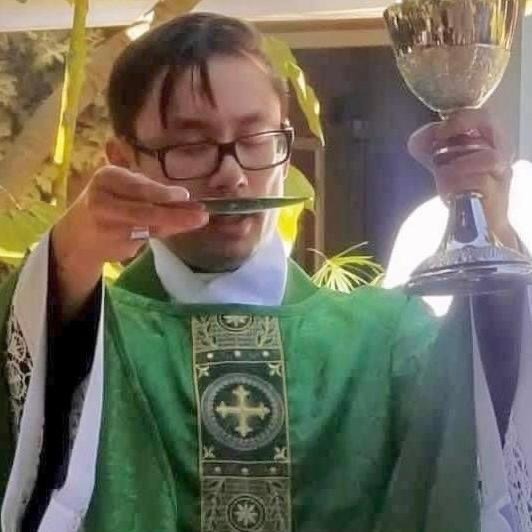
Can women be ordained bishops, priests and deacons?
Yes. Our clergy are validly ordained in the historic Apostolic Succession, and are male and female, married, single and celibate, straight and LGBTQ.
Is Holy Angels Church a real Catholic Church?
Yes. We maintain our Catholic tradition with respect to the following principles: the teachings and person of Jesus Christ; the Bible; the Nicene Creed; the sacramental tradition and liturgical practices; Apostolic Tradition and the Valid Succession.
We share with the Roman Catholic Church a common theology and the same liturgical tradition. Our deacons, priests and bishops participate in the same historical Apostolic Succession as well as the Roman Catholic Church, the Eastern Orthodox Church, and other apostolic churches. We share the same historical events of Western Christianity.
We are rooted in a movement that began in 1870 as a response to the pronouncement of the Vatican One Council where papal infallibility and the primacy of papal jurisdiction were declared. (Even though the movement began in the Modern Age, it is called "The Old Catholic Movement")
What is our position on the divorced?
How is it possible that Holy Angels is authentically Catholic if it is independent of the authority of the Pope?
The Pope is for us the first among bishops and the successor of St. Peter, and we consider his ministry essential in promoting the unity of all Churches.
We practice the original understanding of the Church that existed during the first 1800 years of Christianity and that still exists in the current Eastern Orthodox tradition. In this ancient understanding of Catholicism, each faith community was led by its Bishop and Pastoral Councils. The faithful of each community of local faith participated in the life of the Church by choosing their Bishops and taking an active role in the ministry of their faith tradition.
The Pope was considered a spiritual leader; however, each Community confirmed the autonomy of its own life and government. The approval of Rome was not necessary in the decision-making process of each local church.
What does it mean for us to be ecumenical?
We understand the word ‘ecumenical’, as expressed in our ecclesial community, in three ways:
1.- We recognize that the body of Christ, the Universal Church, includes all baptized Christians regardless of their denominational affiliation. All those who have followed the Lord Jesus in baptism are considered as members of the “one, holy, catholic and apostolic” Church.
2.- We are actively participating in the promotion of Christian unity. Therefore, we seek to unite with all our Christian brothers and sisters in the proclamation of the Gospel, in the celebration of the liturgy and in the realization of the life of Christ.
3.-We recognize the presence of the Spirit in the experience of faith of people of other religions. We recognize the divine presence in every human heart, the belief that all people are loved by God. Therefore, we seek mutual understanding and respect with those of other Religions through dialogue and seek mutual cooperation in the effort for peace and justice in our world.
What is our position regarding clerical celibacy?
Is Holy Angels an affirming Church?
Yes. Holy Angels Church not only recognizes that LGBTQ people deserve respect, but also affirms that they are equally loved by God regardless of who they love or how they identify with their gender. All are welcome.
Generally, divorce is a trauma for all who experience it: spouses, children and other people close to the family. Therefore, efforts for healing and reconciliation are important and necessary. When the dissolution of a marriage occurs, the Christian community is called to love and support each other. This love includes an invitation to the divorced, whether single or remarried, to participate fully in the sacramental life and community of the Church.
Clerical celibacy was not a mandatory requirement until 1274. In fact, it was applied for purely practical reasons of that time and not as the result of a theological reflection. Reasons related to the responsibilities of a family; and secondly, to avoid the threat of hereditary claims over Church property by the children of clerics.
Although most of our clergy are married, we recognize celibacy as a value when it is freely chosen and independent of the priestly vocation. Therefore, marriage and ordination are not mutually exclusive.


